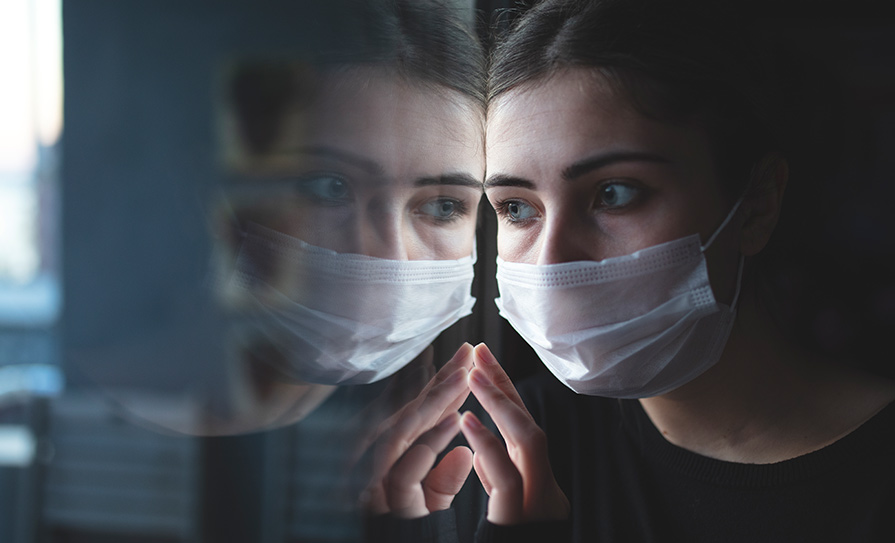
If we are to manage the next pandemic successfully, there’s something we need more than an inquiry
Ireland is getting its very own Covid-19 public inquiry. That’s about all we know. Well, we know it will probably be lengthy. We can assume it will be costly. Aside from that, there’s little detail on how it will be conducted.
What will a Covid-19 inquiry seek to unearth? I suspect the thought processes of decision-makers will be laid bare. There might be some titbits of gossip unveiled, which will keep the media happy. A clash of personalities, perhaps a minor conflict, and, then, hopefully, all will be revealed in a series of WhatsApp messages.
The ‘who’ is important, too. Who will be asking the questions? Who will make recommendations when it concludes? If the process is controlled by politicians, it runs the risk of turning into the worst version of an Oireachtas committee, which often serves no purpose other than giving TDs a platform for competitive faux-outrage.
I suspect the oft-cited ‘expert panel’ will make an appearance somewhere, too. However, when it comes to public health, Ireland has a poor record of choosing the right experts. There is a real lack of understanding of what ‘public health’ means in the corridors of power. Public health expertise is often sourced from within universities, or the hospital system. I would be surprised if any panel of experts is made up of people who routinely manage outbreaks of infectious diseases for a living. But I can hope.
When the inquiry finally concludes, what will we do with the information harvested? Most likely, we’ll find that some very reasonable people made some very reasonable choices, that were in line with what other very reasonable people chose to do, in other reasonable parts of the world. We will find that those people did a decent job, and would perhaps have done a few things differently with the benefit of hindsight. Some will tell the inquiry that our health service wasn’t as equipped to cope with a pandemic as it should be.
But will this be worth millions of taxpayers’ euros? Don’t get me wrong, I think there is a place for an inquiry. Too many people saw relatives die. Too many watched their loved ones live out their final months in isolation. Education was hit hard. Healthcare workers have PTSD. People suffered and want answers. I think this inquiry will probably provide some of those answers. I’m just not convinced it’s going to help us manage the next pandemic.
Arguably, we already know how to prepare for a new infectious disease. We need to ask ourselves what we can improve at a SYSTEMS level next time. We don’t need an expensive inquiry for that. A sit-down coffee and chat with anyone working in outbreak control would be eye-opening. Politicians love to visit a hospital, but there are only six public health units in Ireland. Between them, they managed thousands upon thousands of Covid notifications and close contacts and outbreaks. They still do, actually. It wouldn’t take long to visit them and they would have some stories to tell.
My colleagues would tell you about poverty and the need for social welfare and employment law reform. It is indescribably difficult for some pockets of our population to “stay home” and not go to work when they are on precarious contracts. They don’t get sick pay. They don’t get duvet days. They don’t get paid when they don’t go to work in their crowded warehouses. We see the effects of this in outbreaks every week of every year, pandemic or not.
Pandemics, and outbreaks, generally, are experienced differently by those who have less. They are often sicker to begin with, they have poorer access to healthcare, and we struggle to reach them with relevant messaging. They certainly can’t lock themselves away from the world for six months.
They’re the people who had to choose between feeding their families and staying safe from the virus.
It is often said that infectious diseases don’t discriminate between rich and poor, but society does. It’s said often because it’s true. So, if there is one word that we need to unite around if we are to manage the ‘next Covid’ successfully. It is not ‘flatten’ or ‘curve’ or ‘antigen’ or ‘test’. I’m not talking about ‘meaningful’ or ‘Christmas’ either. The word I’m referring to is ‘equity’. Inequity is everywhere. The effect of inequity on health is devastating. If we can look at our next pandemic through the lens of equity, rather than through the lens of a public inquiry, that would be real public health progress.





Leave a Reply
You must be logged in to post a comment.